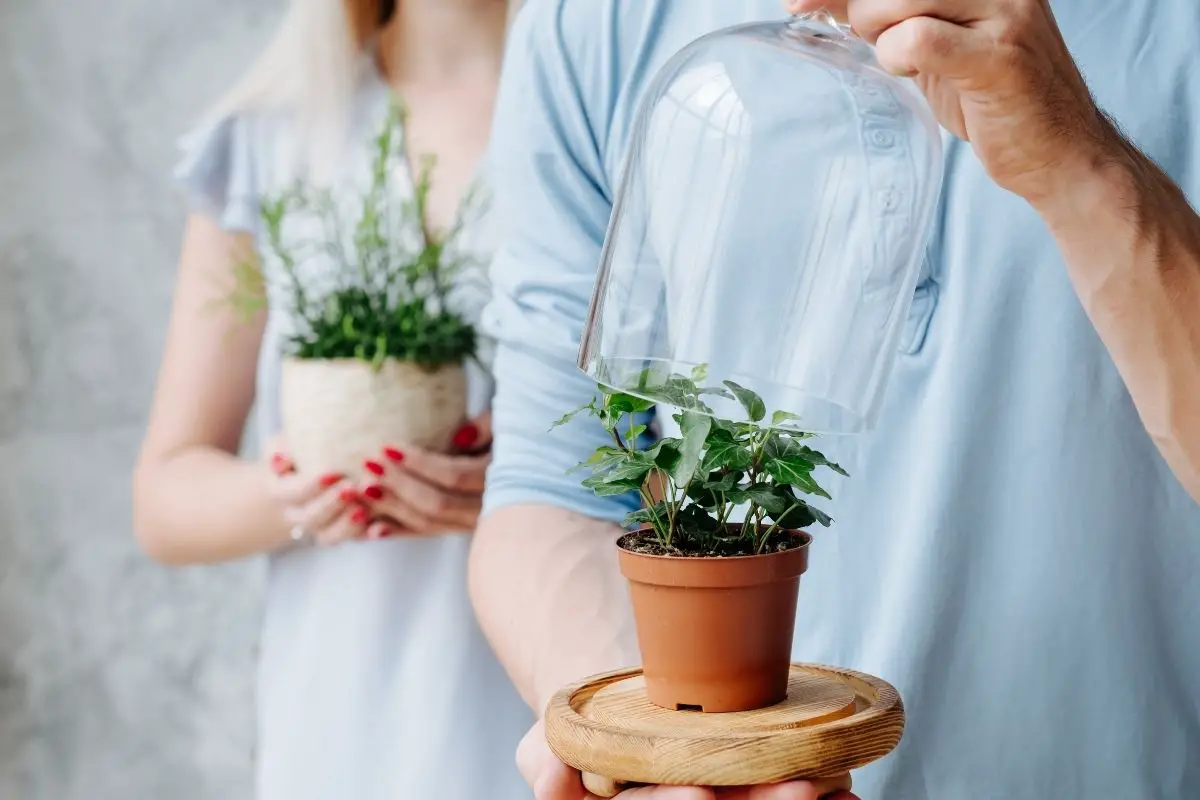I Want to Be Eco-Friendly and My Husband Doesn’t!

How to “Go Green” With a Partner Who Isn’t Interested
I just want to start by saying, I feel your pain and you are not alone.
While you may sometimes feel like you are going solo in your endeavors to live a more sustainable lifestyle while living with a partner who doesn’t care, there are thousands, if not millions of others in the same situation. A recent study shows that 87% of the population is trying to make an effort to live an eco-friendly lifestyle.
I grew up in a city that wasn’t as progressive as others, so when I started to adopt a more environmentally friendly lifestyle, I often felt like I was battling tidal waves. Family, friends, and romantic partners all struggled to understand my purpose and I struggled to understand why it was so hard for them to grasp the importance of green living.
In the end, I found that arguing with them wasn’t working. So instead I simply did what I could without forcing them to join in. The amazing thing was that once I stopped pushing, many of them started to mimic my actions and make sustainable choices of their own.
Sustainable Living 101: What Does it Mean to Be Eco-Friendly?
Before we get into the specifics of how to manage an eco-friendly lifestyle with a not-so-eco-friendly partner, let’s talk about the basics. With so many different terms floating around the internet, it can make the task of understanding how to be an environmentally conscious individual seem a bit daunting.
The terms below, for example, are just a few of many that you may have heard of or read about:
- Zero waste conscious: Trying to minimize what ends up in landfills (i.e. avoiding plastic and other non-recyclable or non-degradable materials).
- Conscious consumption: Shopping sustainably and/or eating sustainably (often meaning buying local, thrift shopping, and being vegetarian or vegan).
- Eco-Friendly, environmentally friendly, or green living: General umbrella terms for being conscious of your impact and making various sustainable lifestyle choices.
- Clean energy conscious: Using products or methods that derive energy from renewable, zero-emission sources (i.e. clean energy appliances and vehicles, using LED light bulbs, powering your home with solar, wind, or hydropower).
- Fair Trade conscious: Buying Fair Trade certified products that are made according to strict social, economic, and environmental standards. The sale of these products supports the livelihoods of various farmers, land workers, and fishermen (and women) around the world.
While these terms have their specific meanings, the general definition of being eco-friendly, as well as all of the other terms, points to having a basic awareness and making an effort to reduce your impact on the environment. When starting out, however, it’s important to try not to get wrapped up in the definition of exactly what type of environmentally conscious person you are.
Living a fully sustainable lifestyle isn’t easy work, so don’t be too hard on yourself if you feel a bit overwhelmed. The most important thing to remember is that any effort to live sustainably is better than no effort at all.
Things You Can Do to Live Sustainably When Your Partner Doesn’t Want To
Start Small and Simple
Do not overhaul your entire life in one day! The often overused, yet somehow always fitting saying “Rome wasn’t built in a day” works well here. If you attempt to revamp your entire lifestyle overnight, you are not only going to overwhelm yourself, but you are likely to turn your partner even more against the benefits of going green.
Instead, pick one small thing to focus on and give yourself and your partner time to adjust before introducing the next thing. For example, you could switch out all of the lights in your home for LEDs, or you could start buying products and food that use less plastic or come packaged in recyclable or biodegradable material.
Lead by Example
Don’t start by trying to explain every single change that you are making and why. Instead, simply go about it quietly on your own. If you try to explain everything you are doing, your partner might feel like they are being lectured and they will potentially focus more on the inconvenience of the change rather than the benefits.
Basically, you do you and let your partner come to appreciate or understand the benefits of what you are doing at their own pace.
Don’t Just Talk, Listen, and Be Willing to Compromise

After some time, you might find that your partner starts asking questions on their own. Or, they might simply be more receptive to you explaining your passion for living sustainably. However, the key thing to remember is to listen just as much as you talk.
Your partner may have concerns about how changing certain things will impact their daily life and worry that they won’t be able to enjoy the things that please them. This is completely valid, and you should hear them out. Instead of removing all of the foods and products that make them happy, perhaps you could suggest a compromise where you simply buy those products less often?
Make It Fun
There is no hard and fast rule on how to go about this task. The idea is to make living an eco-friendly life enjoyable rather than feeling like a punishment. You could do this by shopping with your partner and challenging each other to see who can find the better eco-friendly products. Or by seeing who can go the longest without caving into their favorite not-so-sustainable treat.
It doesn’t have to be about making it a game either. By simply sharing this passion with your partner in whatever way works for the two of you, they might come to find enjoyment in it because they know it makes you happy.
Know When to Quit
In the end, if your partner remains disinterested in participating in your desire to live more sustainably, don’t try to fight it. This is not something to lose sleep over nor is it something that should cause a rift in your relationship. Plenty of couples have opposing views or separate interests and hobbies while still maintaining a happy and healthy relationship.
Make changes that only affect you or that minimally affect your partner, and seek out like-minded communities, friends, or support groups that you can share your passion with instead.
Frequently Asked Questions
How Do I Approach My Husband About Wanting to Live Sustainably?
While this is a valid question, there is, unfortunately, no one right answer. Every relationship dynamic is different. You know your partner better than we do. Consider their communication style and how they have responded in the past to big changes or suggestions and go from there.
Where Can I Find Resources to Help Me Live an Eco-Friendly Lifestyle?
Honestly, Google is a great place to start. The internet truly is a vast source of knowledge. You could start by searching “resources for how to live sustainably”, or by typing in any other question you might have. Purdue University also has an excellent list of eco-friendly resources on its global education site.
How Do I Find Like-Minded Eco-Friendly People to Share My Passion With?
Depending on where you live, it can sometimes feel difficult to find others that share your passions. I am a big fan of Meetup. Any time I have moved to a new city, Meetup has been an excellent source for me to find friends and groups that share my interests.
If you would rather meet people more organically, you could start by researching local businesses that sell sustainable products or that support eco-friendly initiatives. You are sure to bump into others that are trying to live sustainably by frequenting these types of places.




